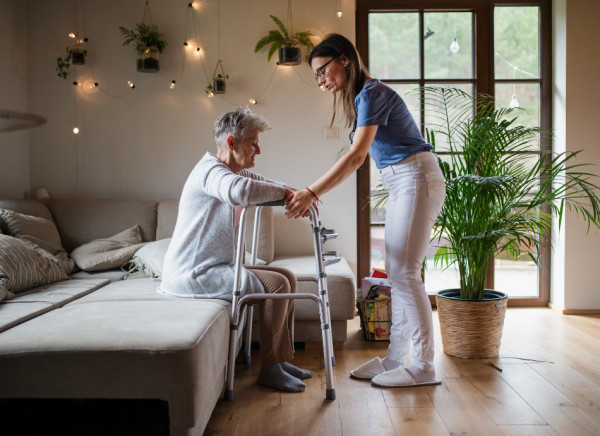This video may take a few moments to load.
(Better Health Channel, Australia, 2018)

We're aware of a problem when trying to use Zero Data to link to Healthify. Zero Data is managed by Health NZ and we are working with them to get this fixed.

This video may take a few moments to load.
(Better Health Channel, Australia, 2018)
When you’re ready to leave hospital, staff should give you written discharge information which will also be sent to your GP (family doctor) or healthcare provider. This should explain:
If you feel unsure, don’t understand or don’t have enough information about any of these areas, you can find out more below. You can use our guide to talk to your hospital care team before you’re sent home.
Ask questions about the discharge process before the day comes when you'll be leaving the hospital. This will include finding out the expected date and time of leaving. Also find out if you will need any paperwork, eg, a discharge letter, discharge summary, or prescription medicine.
Knowing ahead of time will also enable you to think about what needs to happen before you leave hospital to prepare for being at home or wherever you're being discharged to. You can read about these things below.
Before leaving hospital, get information from your hospital care team about your medical condition:
Make sure you understand anything you have to do or avoid once you’re discharged. Will you need any aids or equipment for your recovery, (eg, a walking stick, crutches, shower stool)?
Tip: If you’ve been in hospital because of an accident, you might be able to get equipment and help at home from ACC. Find out more about help at home after an injury.(external link)
Make sure you know what activities you can and can’t do once you’re home. It might be useful to take some notes, so you don't forget important information. These might include things like doing certain exercises, avoiding heavy lifting, drinking lots of fluids, changing your dressing or taking medicines. What activities are ok? Can you drive, bath yourself, climb stairs, cook meals etc? Ask as many questions as you need to make sure you understand.
Ask about returning to work and how that can be managed. If you’re unable to return to work when you’re discharged, ask about getting a medical certificate for your employer. Read more about recovery at work after an accident or injury.
Before you leave hospital, ask about your medicines.
Read more questions to ask about your medicines.
Most people shouldn't drive themselves home after discharge. You will probably need to arrange to be taken home by a relative or friend in a private car or use a taxi (it’s often recommended that you don’t use public transport). If a whānau member is picking you up, make sure they know what time you’ll be discharged. Tell them if you need anything for the car trip home, eg, a soft cushion to sit on, or room for a wheelchair.
Talk to your whānau or carer before your hospital discharge so they know what they need to do to help you. Make sure you and your family or carer understand any special instructions, eg, giving you your medicine or changing bandages. A member of your healthcare team can show you, your whānau or carer how to do these tasks.

Image credit: Canva
Your care team at the hospital will probably arrange any other support you might need, eg, rehabilitation, Meals on Wheels, community nurse visit, a personal medical alarm etc. This is especially important if you live alone.
There’s a wide range of support services in Aotearoa New Zealand – this page called help in your home(external link) is a good place to start, or have a look at our support section for groups and support related to specific conditions.
Check if there are any follow-up appointments you need to make with your healthcare provider, specialist or at an outpatient clinic. For example do you need to have stitches taken out, or an appointment with a physiotherapist? Record these dates in your phone or diary, along with any special instructions for these appointments (eg, not eating before a blood test).
Understand what the warning signs might be that mean you have to call a health professional or return to hospital. After surgery, you need to keep an eye on your wound to make sure it's healing well. After a stay in hospital, you may be at risk of infection or a treatment injury. If you're in bed for some time after discharge, you may also be at risk of pressure sores. If you have any signs of complications or suspect that something isn't healing well, talk to your healthcare provider or phone Healthline 0800 611 116 for advice.
You might not feel like you’re ready to go home especially if you’re concerned about your condition, you live alone or are worried you don’t have the right support systems in place for managing. It’s important that you talk about how you’re feeling with a friend, member of your whānau or someone in your hospital care team. You could ask to talk to a social worker who can talk about how you’re feeling and help put support in place to help with your transition from hospital.
Being stuck in hospital rather than being at home can be frustrating and a bit scary. You might want to leave hospital before your healthcare team says you’re able.
It’s your choice to leave at any time and refuse treatment, but if your hospital care team or specialist says you need to be there, you should listen to what they say. They won't be suggesting you stay if it's not necessary and it's important that they can:
The Health Direct (Australia) website(external link) provides this list of questions you could ask before being discharged from hospital.
When the time comes, check that you have all your things, including any valuables that you might have put in a safe place, like the bedside locker, table or at the nurses’ station. In some cases, you may need to leave your bed so it can be prepared for another patient. You may be asked to wait in a discharge, transit or day lounge. This is an area with chairs, beverages and TV facilities where you can wait until a family member or friend can pick you up.
Preparing to leave hospital(external link) Better Health Channel, Australia
Let's plan to leave hospital(external link) HQSC, NZ English(external link), te reo Māori(external link), Samoan(external link), Tongan(external link), Chinese (simplified)(external link), Fijian(external link), Hindi(external link), Kiribati(external link), Niuean(external link), Rotuman(external link), Tokelauan(external link), Tuvaluan(external link)
Meals on Wheels(external link) NZ Red Cross, NZ
Other community services(external link) NZ Red Cross, NZ
Help in your home(external link) New Zealand Government, NZ
Self-management and healthy living apps
Credits: Healthify editorial team. Healthify is brought to you by Health Navigator Charitable Trust.
Last reviewed: